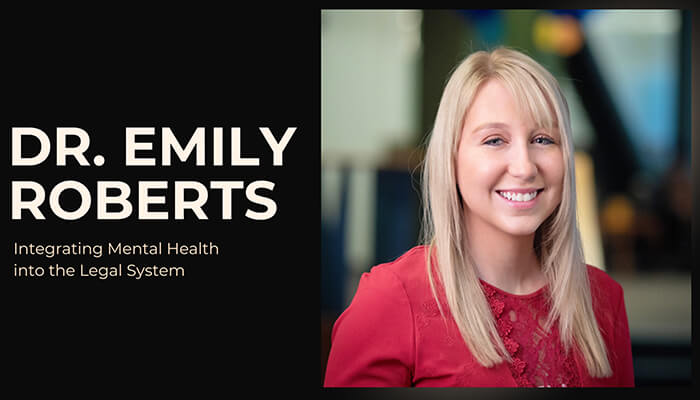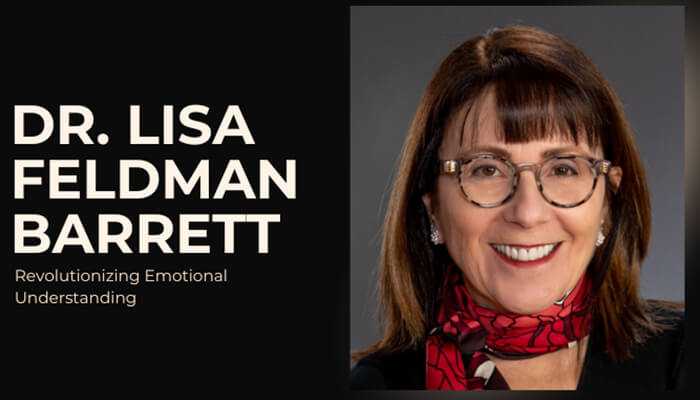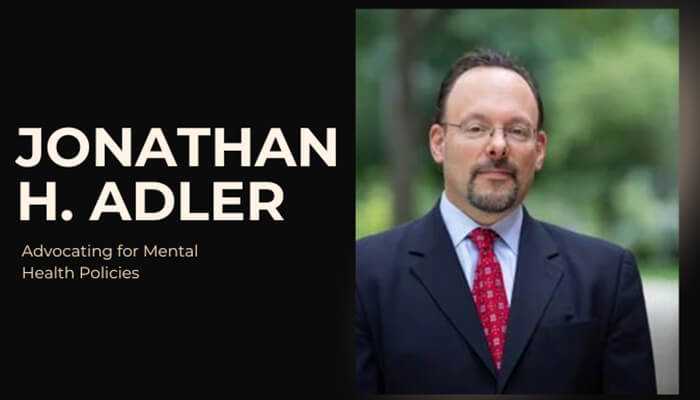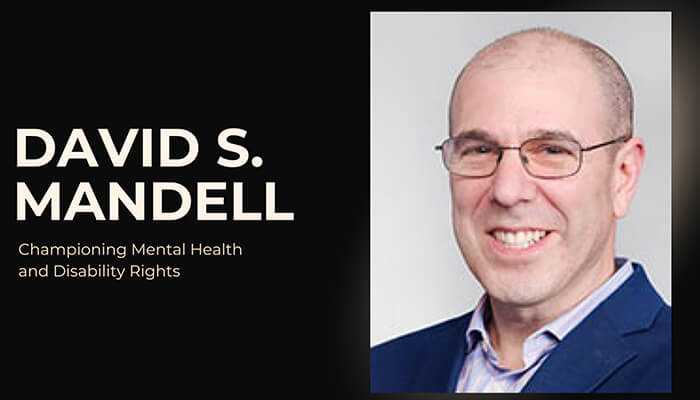As the dialogue between mental health advocacy and legal regulations grows, several trailblazing professionals are at the forefront of this intersection and driving significant change in 2024.
By integrating insights from both fields, these thought leaders are helping create more comprehensive and effective policies. Today, we will spotlight five leaders bridging these critical gaps and advancing the conversation on mental health and legal reform.
5 Leaders Bridging Mental Health and the Legal System
Dr. Emily Roberts: Integrating Mental Health into the Legal System

Dr. Emily Roberts, a clinical psychologist and legal consultant based in Pennsylvania, is renowned for her transformative work of integrating mental health perspectives into legal systems.
Dr. Roberts has developed and implemented protocols incorporating mental health assessments into legal proceedings – such as custody battles and criminal justice cases – to ensure that mental health considerations are central to legal decisions.
Her collaborative projects with legal and other professionals, including other expert therapists in California and other states, involve training judges, attorneys, and court advocates to understand the complexities of mental health and its impact on behavior and decision-making. This approach fosters greater empathy and more informed decisions, leading to fairer outcomes in cases involving mental health issues.
Dr. Lisa Feldman Barrett: Revolutionizing Emotional Understanding

Dr. Lisa Feldman Barrett, a distinguished professor of psychology at Northeastern University, is reshaping how we understand and address emotions through her pioneering research on the theory of constructed emotion.
Her work challenges traditional views by demonstrating that emotions are more than reactions to external events; they are also brain constructs based on past experiences, expectations, and contextual factors.
This innovative perspective emphasizes that emotions are a deeply intertwined part of our cognitive processes and are not fixed or universal but somewhat shaped by individual experiences and interpretations.
Dr. Barrett’s insights inform new policies and legal frameworks that better address trauma and mental health issues. With these findings, legal professionals can develop more sensitive and accurate approaches to cases involving emotional distress, such as trauma-related legal claims or evaluations of emotional impact in various legal settings, improving the fairness and effectiveness of legal outcomes.
Jonathan H. Adler: Advocating for Mental Health Policies

Jonathan H. Adler, a law professor at Case Western Reserve University, has made significant contributions to the field of mental health law through his research and advocacy.
Adler’s work examines the intersection between mental health and legal systems and how we can improve legal frameworks to address mental health issues better. Adler’s research helps shape legislative efforts by offering evidence-based recommendations for improving mental health laws.
For example, his work may involve analyzing current legal measures to protect individuals with mental health disorders and identifying gaps or shortcomings in these laws.
By advocating for specific reforms, Adler’s contributions have led to more comprehensive and effective legal protections and resulted in a legal system that ensures individuals with mental health conditions receive appropriate legal support and protection.
David S. Mandell: Championing Mental Health and Disability Rights

David S. Mandell, Professor of Psychiatry and Director of the Center for Mental Health Policy and Services Research at the University of Pennsylvania, is renowned for his pioneering work in mental health policy and disability rights.
Mandell’s research focuses on critical areas such as enhancing access to mental health care for marginalized communities, enhancing the effectiveness of mental health interventions, and addressing systemic disparities in mental health care.
Mandell’s research has led to significant policy advancements. For instance, his work has highlighted the difficulties faced by people with autism and other disabilities while trying to access quality mental health services.
His studies have informed the development of policies to reduce these disparities, such as recommendations for improving the incorporation of mental health support into primary care practices.
Additionally, Mandell’s advocacy has contributed to legislative reforms meant to ensure more comprehensive mental health coverage under insurance plans and improved disability accommodations, making a tangible difference in the lives of those with mental health conditions and disabilities.
Dr. Michael Chen: Bridging Mental Health and Criminal Justice

Dr. Michael Chen, a forensic psychologist and professor at the University of California, Irvine, is a leading figure in integrating mental health considerations into the criminal justice system.
His work involves providing expert psychological assessments and testimony in court, developing specialized mental health screening tools, and advocating for systemic reforms that address the mental health needs of these individuals.
Chen’s development of mental health screening tools helps identify people who could be experiencing psychological disorders to ensure they receive appropriate care rather than punitive measures.
His expert testimony helps courts make informed decisions that consider defendants’ mental health status. This can influence sentencing and rehabilitation approaches, promoting fairer treatment within the legal process.
Conclusion
These influential professionals pave the way for advancements in addressing mental health within the legal system, fostering a more empathetic and practical approach to policy-making.



